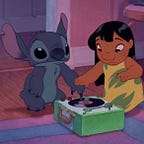Individual Medium Post #1
How might paying attention to sound/soundscapes help us think about all of the ways that capitalism destroys our relationships to each other, as well as about how people continue to form new relationships with each other? Think about this question by engaging Goffe’s concept of extra-coloniality. How might our understanding of Honolulu’s Chinatown change if we engaged this question of sound?
Post Industrial Revolution, the Chinese immigrant population has grown significantly due to the increasing demand of labor forces in the Western world. Especially those from the Pearl River Delta area because of their unique characteristics as one of the most important economic and trade centers of China. Among their destinations, the significance of Jamaica and Hawaii (and how the Chinese played a role in their society) were usually ignored in history, but they were actually very representative examples of how extra-colonialism and capitalism shaped society.
The Chinese continued to bring their lifestyle into their destinations, such as the Chiney Shop in Jamaica and Chinatown in Hawaii. Yet afterward, both regions were colonized or heavily controlled by the Western imperialist powers. The Western countries implemented a capitalist economic structure and established a strict racial hierarchy in their colonies. According to Gilmore in “Geographies of Racial Capitalism”, she suggests that capitalist practice depends on racial hierarchy, and “we can’t undo racism without undoing capitalism” (3:18). In Jamaica and Hawaii, capitalism did enhance the productivity or economic status of the colonies in the short term, but the racial structure left by capitalism also brought irreversible influence to their society.
In Jamaica, the colonizers intentionally designed the 1803 “Trinidad experiment” to ensure “the races would not mix and would remain discrete and segregated” (Goffe 102). Surprisingly, this did not end up being the case at all: the Chinese immigrants and Afro-Jamaican somehow formed a sort of cooperative relationship, which not only brought them closer but also produced Reggae music, the sound of the unification of the oppressed races in Jamaica. In Goffe’s article, the author stated, “Chinese diasporic capital fostered unexpected extracolonial conduits of sociality and creativity for the Jamaican masses” (98). Since there were many Chiney shops (Chinese-owned small retail shops with sound systems) in Jamaica, they became a place where Chinese and Jamaican culture could communicate, and they served as an outlet for the oppressed people to let their voices be heard through the sound system.
Compared to Jamaica, in Honolulu’s Chinatown, there was lacking such an outlet or cooperative relationship among the oppressed people. According to Saranillio, the white settlers separated the Hawaiian people and different Asian immigrants to better control them. If Chinatown in Honolulu could play a role in Hawaii as the Chiney shop did in Jamaica, the oppressed people in Hawaii might have been able to unite together to strive for fairer treatment.
